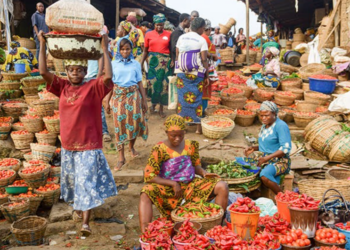The week that was (June 6-10)
Mixed trends along the curve as short-term rates rise while long-dated bonds recline: The divergent trends along the Naira yield curve continued last week: short-dated Nigerian T-bill (NTB) yields continued to trend higher (Avg: +16bps w/w) while bond yields declined over the week with the long end down some 5-10bps. Liquidity conditions were relatively adequate with lower bank borrowing from the CBN discount window (daily average: -86% w/w to NGN1.6billion). That said interbank rates jumped on the Friday (+600bps to 14%) driven by some outflows for FX auction settlements.
At the NTB auction on Wednesday, the CBN (on behalf of the DMO) responded to relatively stronger demand, with bid-cover at 2.1x (last 1.6x), by selling NGN183billion worth of short-term debt relative to its target NGN174billion. Interestingly, the apex bank lowered the stop-rate on the 12-month tenor to 6.44% (last 6.49%) which in the light of the May 2022 rate hike lends credence to the argument that tightening decision was largely symbolic. Indeed, actual CBN behaviour across other fixed income instruments suggests any change at all: rates on the 12-month OMO yields remain at 10% and the recent 3m Special Bill maturities were rolled over at 0.5%.
Figure 1: Naira Yield Curve

Source: Bloomberg
Eurobond sale drives uptick in Nigeria’s debt in Q1 2022: The DMO put out Nigeria’s debt figures at the end of March 2022 which showed that Nigeria’s total public debt (FGN & State) has increased by 5% from the end of December 2021 to NGN41.6trillion (23% of Nominal GDP) or USD100billion. In terms of mix, domestic debt continued to dominate at NGN25trillion (60% of total debt) while external debt stood at USD39.6billion. External debt is up 5% from December driven by the Eurobond sale at the end of March 2022. On the domestic side, the big increases stemmed from T-bill issuance with the outstanding stock now at NGN4.4trillion which is reflects DMO’s net-issuance posture on the front-end in since the pandemic. As I have noted for some time, this net issuance posture for T-bills goes against everything the Finance Ministry pushed for when it sold USD3billion in Eurobonds in 2018 under a supposed plan to lower refinancing risk. Today the outstanding stock of T-bills is now above the level in 2018 and the sold Eurobonds are yet to mature.
Figure 2: Nigeria – Public Debt

Source: DMO
The outstanding stock of bonds stood at NGN14.2trillion, up by some NGN278billion from the end of December 2021, though the DMO sold NGN883billion worth of bonds over Q1 2022. Fear not, the missing gap reflects the maturities of NGN605billion in January of the FGN 2022 bond which were subsequently rolled-over.
Greater foreign collections push corporate tax receipts higher in Q1 2022: The National Bureau of Statistics (NBS) published data on Company Income Tax (CIT) receipts in Q1 2022 which showed a 36% y/y (+53% q/q) rise to NGN532billion which is the highest quarterly print since Q2 2015 NGN621.50 billion). Looking through the breakdowns, growth largely stemmed from foreign CIT payments (+75% y/y to NGN323billion) amid strong local collections (+37% y/y to NGN209billion).
Figure 3: Quarterly CIT collections

Source: NBS, FIRS
Naira remains broken, FX reserves post increase: Nigeria’s external reserves posted what must be their first increase in weeks: +0.2% w/w to USD38.6billion (5.8months of import cover). On the currency front, the official rate remains stranded at NGN419/$ though the CBN continues to sell anywhere between 440-460 at its SMIS auction and to foreign investors. That said, the parallel market continues to trade at weaker levels (NGN600-610/$).
The Weak Ahead (June 14-17)
In the week ahead, market focus shifts to the NTB auction where the CBN, on behalf of the DMO, would look to refinance NGN35billion worth of paper. There are also minute OMO maturities of NGN20billion. In terms of data, the NBS is likely to release May 2022 inflation numbers.
Inflation likely blew past 17% level in May 2022: In line with the global trends, Nigeria’s inflation likely quickened further over May likely fueled by the continued spiral in diesel prices (+22% m/m) and Naira depreciation at the parallel market. Diesel is the main fuel used in inter-state transport of food items and the pass-through effects are likely to have underpinned an acceleration in headline inflation to between 17.75-17.85% y/y on my numbers.




















